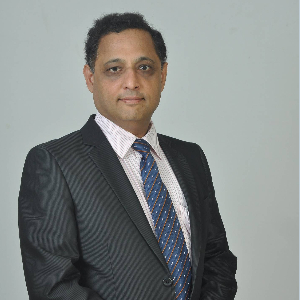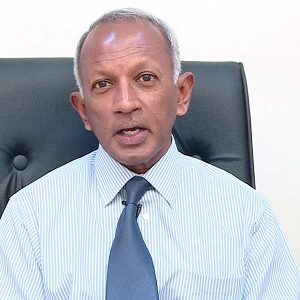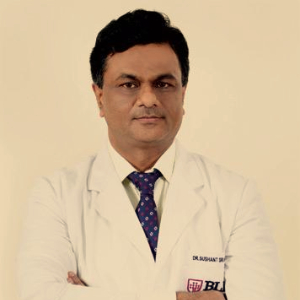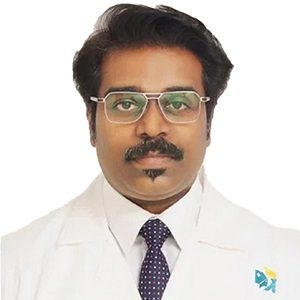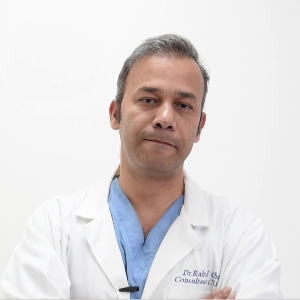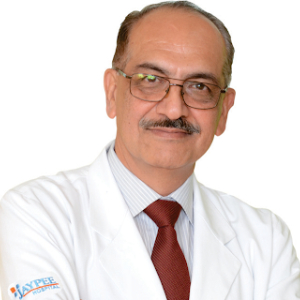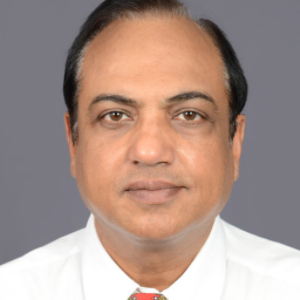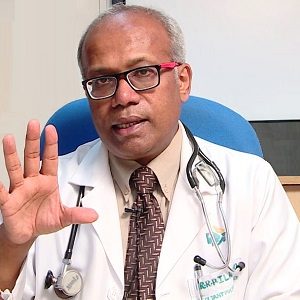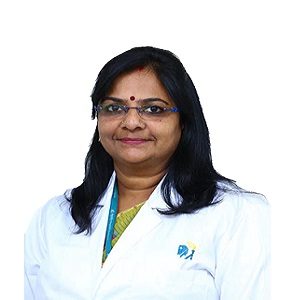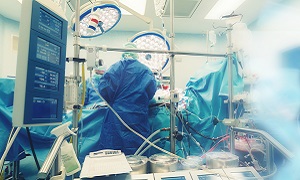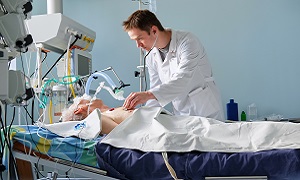Best Lung Transplant Surgeons in India
- Cardio-vascular and Thoracic Surgery & Heart Transplant, Mumbai Maharashtra
- Over 30 years’ experience
- Reliance Hospital Navi Mumbai
Profile Highlights:
- Dr. Anvay Mulay is a renowned Consultant Cardio-thoracic Surgeon at Sir H. N. Reliance Foundation Hospital, specializing in advanced Cardiovascular, Thoracic Surgery, and Heart Transplant.
- With over 30 years of global experience, he has a distinguished track record in leading-edge cardiac care.
- Dr. Anvay Mulay has worked at Leeds General Infirmary, Providence St Vincent Hospital, and Bristol Royal Infirmary.
- He holds an MBBS and MS from Grant Medical College, Mumbai, an MCh from the University of Mumbai, and completed his fellowship at St. Vincent’s Hospital, Oregon.
- Pulmonologist, Chennai, India
- Over 40 years’ experience
- Apollo Hospitals Greams Road
Profile Highlights:
- Dr. Raj B Singh is a distinguished Respiratory Medicine Specialist with an impressive career spanning over 36 years.
- Currently practicing at Apollo Hospitals, Greams Road, Chennai, Dr. Singh has garnered extensive experience and expertise in managing a wide range of respiratory conditions.
- Dr. Singh’s expertise encompasses a variety of respiratory services, including Respiratory Tract Infection, Bronchitis Treatment, Mediastinoscopy, Pulmonary Function Testing, Tracheostomy, Pneumonectomy, and Decortication.
- Chairperson Heart & Lungs Transplant, New Delhi, India
- Over 20 years’ experience
- Artemis Hospital, Gurgaon
Profile Highlights:
- Dr. Sushant Srivastava is a highly respected Cardio-Vascular Surgeon with a distinguished career spanning over two decades.
- He is currently the Chairperson for Heart & Lungs Transplant at Artemis Hospitals, Gurugram.
- An expert in Cardio Thoracic and Vascular Surgery, Dr. Srivastava has performed over 10,000 surgeries, making significant contributions to the field with his expertise in complex procedures.
- Pulmonologist, Chennai, India
- Over 7 years’ experience
- Apollo Hospitals Greams Road
Profile Highlights:
- Dr. Jebin Roger S is a dedicated specialist in Pulmonary Medicine with over 7 years of experience, focusing on asthma and allergy management. Currently, he is associated with Apollo Hospital, Chennai as a Consultant Pulmonologist.
- He holds an MD in Pulmonary Medicine and a Diploma in Allergy and Asthma from CMC Vellore, complemented by a DNB in Pulmonary Medicine.
- Dr. Jebin has made significant contributions to the field of respiratory medicine through his roles as a faculty member in various workshops on ultrasound, bronchoscopy, thoracoscopy, spirometry, and asthma and allergy. He was also the Organizing Secretary for the National Allergy and Immunology Conference (ALLERGOCON) in 2019 and 2020.
- Senior Cardiothoracic and Heart Lung Transplant Surgeon, New Delhi, India
- Over 23 years’ experience
- PSRI Hospital
Profile Highlights:
- Dr. Rahul Chandola is a renowned cardiothoracic and vascular surgeon in India specializing in Adult CTVS along with heart and lung transplant surgeries.
- He is an expert heart and lung transplant surgeon and has performed over 100 heart transplant surgeries with successful results in both adult and pediatric patients.
- Currently, he works as a Senior Cardiothoracic and Heart Lung Transplant Surgeon in PSRI Hospital, New Delhi.
- Cardiac Surgeon, Noida, India
- Over 30 years’ experience
- Jaypee Hospital, Noida
Profile Highlights:
- Dr. Manoj Luthra is a highly experienced and renowned Cardiac surgeon who has 30+ years of experience and performed the first heart transplantation surgery in the Indian Armed Forces.
- Till date, Dr. Manoj Luthra has performed more than 12,000 cardiac surgeries including 8000 heart bypass surgeries. He has also performed many heart transplants and aneurysm surgeries.
- Top Cardiac Surgeon | Kokilaben Hospital, Mumbai, India
- 36+ Years Experience
- Kokilaben Dhirubhai Ambani Hospital
Profile Highlights:
- Dr. Nandkishore Kapadia is one of the leading Cardiothoracic and vascular surgeons in India excelling in heart and lung transplant surgeries.
- He has 36+ years of experience in the field during which he has performed over 10000 CABGs, 2000 heart valve repairs, and 800 minimally invasive cardiac surgeries.
- He has also performed more than 5000 open heart surgeries, 200 heart and lung transplant surgeries, and 150 VAD and ECMO implantation procedures.
- Pulmonologist and Respiratory Medicine Specialist, Chennai, India
- Over 33 years’ experience
- Apollo Hospitals Greams Road
Profile Highlights:
- Dr. Ilangho R P is one of the coveted pulmonologists in India from Chennai with about 33 years of experience in the field.
- He has achieved many prestigious positions in various national and international medical associations.
- His patients trust Dr. Ilangho for the most accurate diagnosis and the best care for respiratory diseases. He specializes in Decortication, Lung Surgery, and transplants.
- Pulmonologist and Respiratory Medicine Specialist, Chennai, India
- Over 25 years’ experience
- Apollo Hospitals Greams Road
Profile Highlights:
- Dr. Gayathri A R is one of the best pulmonologists in Chennai, with over 25 years of experience as a Respiratory Medicine Specialist.
- Dr. Gayathri has completed MBBS and MD from Tamil Nadu; and has a Fellowship from the College of Chest Physicians, USA.
- Dr. Gayathri was in the management of a Heart-Lung Transplant Recipient and holds membership in a couple of medical associations.
- She has published 20 papers and delivered 36 guest lectures to date.
Best Lung Transplant Hospitals in India
Lung Transplant
Lung transplant is an effective treatment for people with severe lung disease, where a diseased or failing lung is replaced with a healthy lung, usually from a deceased donor. This treatment option is reserved for people who have tried multiple other treatments but failed to see any significant improvements.
Depending on the patient’s condition, a lung transplant can involve replacing one of the lungs or both of them. Sometimes, the lungs are transplanted along with a donor’s heart. Even though a lung transplant can involve several complications, it generally improves one’s health and quality of life.
Purpose
Unhealthy or damaged lungs can make it difficult for one to get the required amount of oxygen. The lung’s function can be affected due to a variety of diseases and conditions; some of the most common ones including:
- Chronic obstructive pulmonary disease including emphysema
- High blood pressure in the lungs (pulmonary hypertension)
- Scarring of the lungs
- Cystic fibrosis
Even though lung damage is usually treatable with medication or special breathing devices, when these measures are no longer able to help or the lung function reaches a life-threatening condition, a lung transplant might be suggested by your doctor.
People who are suffering from coronary artery disease might need a procedure for restoring blood flow to a blocked or narrowed artery in the heart, along with a lung transplant. In some cases, people having serious heart and lung conditions might need a combined heart-lung transplant.
However, it is also noteworthy that a lung transplant is not the right treatment for everyone. Certain factors can sometimes mean that you are not a proper candidate for the transplant. It might not be the proper treatment if you
- Have an active infection
- Have serious diseases including kidney, liver, or heart diseases
- Have a recent personal medical history of cancer
- Are unwilling or unable to make the necessary lifestyle changes necessary to keep your donor lung healthy, which includes avoiding alcohol and smoking
- Do not have a network of supportive friends and family
Preparation
Preparations for a lung transplant usually begin a long time before the transplant. Sometimes you might need to prepare for a lung transplant weeks, months or even years depending upon the waiting time for your transplant.
If your doctor recommends a transplant, you will be referred to a transplant center for your evaluation. You are free to select a transplant center of your choice as well. When you are evaluating a lung transplant center, do keep in mind to:
- Check with your health insurance provider to know which transplant centers are covered by your insurance plan
- Look at the number of lung transplants the center performs each year as well as the survival rates of the recipients.
- Consider additional services that your transplant center provides, such as travel arrangements, support groups, help to find local housing for your recovery period, etc.
Once you have made up your mind to have your lung transplant, you will need an evaluation in order to see if you are eligible for the transplant. During an evaluation, your medical history will be reviewed by your doctors and transplant team and a physical examination will also be conducted. A physical examination along with several other tests will also be required in order to evaluate your mental and emotional health.
The benefits and risks of the transplant will also be discussed by your transplant team as well as what you should expect before, during and after your transplant. Your name will be registered as well as placed on the waiting list, once you are determined eligible for the transplant.
If the transplant team determines you as a candidate for a lung transplant, your name will be registered and placed on a waiting list. Since the number of people who need lung transplants exceed the number of donated lungs available, unfortunately, some people die while they wait for their transplant.
While you are on the waiting list, your medical team will be closely monitoring your condition as well as alter your treatment as needed. Your doctor might also recommend healthy lifestyle changes, which include eating a healthy diet, getting exercise on a regular basis and avoiding tobacco.
Your doctor might also recommend you take part in a pulmonary rehabilitation program while you are waiting for the donor’s lung, as this can help in improving your health as well as your ability to function in daily life before and after the transplant.
As soon as a donor organ is available, the donor-recipient matching system administered by the United Network for Organ Sharing will find an appropriate match based on specific criteria, which includes:
- Blood type
- Size of organ compared with the chest cavity
- How severe the recipient’s condition is
- Geographic distance between the donor organ and transplant recipient
- Likelihood that the transplant will be successful
- Overall health of the recipient
Even though it can take months or even years before a suitable donor is available, you should be prepared at all times. Make sure that your transplant team is able to reach you at all times.
Keep your hospital bag packed and remember to include a 24 hour supply of your medications. Also arrange transportation to the center in advance, as when the organ is available, they will be expecting your arrival in just a few hours.
After you arrive, you will need to undergo tests in order to make sure that the lung is a good match, and you are healthy enough for surgery. The donor’s lung needs to be healthy as well, or else it will be declined by the team. If it doesn’t seem like the transplant will be a success, it might be cancelled.
Procedure
You will receive general anesthesia before the procedure and therefore, you will be unaware throughout the process and won’t feel any pain. You will get a tube that will be guided through your mouth and into your windpipe so that you are able to breathe.
First, your surgeon will be making a cut in your chest for removing your diseased lung. The main airway to that lung as well as the blood vessels between that lung and your heart will next be connected to the lung of the donor. In some transplants, you might be connected to a heart-lung bypass machine, which will circulate your blood throughout the procedure.
After the transplant
A tube in a vein will deliver strong medications for controlling pain and to prevent rejection of your new lung. As your condition improves, you will not need a mechanical ventilator anymore and you will be moved out of the ICU as well. Recovery can involve a one-to-three week hospital stay and the amount of time you will spend in the ICU and in the hospital may vary.
Once you leave your hospital, you will require around three months of frequent monitoring by the lung transplant team for preventing, detecting and treating complications as well as for assessing your lung function. You need to stay close to the transplant center and over time, your follow-up tests can get less frequent.
Few important things you need to include your routine include:
- Education sessions so that you can learn your complicated new lifelong medication plan.
- Frequent visits to your doctor.
- Regular tests of lung function, chest X-rays, blood tests as well as procedures like bronchoscopy
Many transplant centers offer temporary housing nearby so that it becomes easier for their patients to make visits easily and frequently.
A lung transplant can help one to remove breathlessness and live an active and healthy life for years. 4 out of 5 people who have had lung transplant surgery, has reported to have no limitations on their physical activity.
However, complications after the transplant may eventually arise. The immune system’s rejection of the donor’s lung can be slowed, though it can’t be stopped entirely. The necessary powerful immune-suppressing drugs have some side effects which are unavoidable. These may include kidney damage, diabetes, etc. Survival after transplant is mostly influenced by age.
Risks
In a few cases, complications which are associated with a lung transplant can be serious and sometimes fatal. Rejection and infection are known to be the most common risks.
Risk of rejection: Your immune system is meant to defend your body against any foreign substances. Even if there is a match between you and your donor, your immune system will attempt to attack and reject your lung or lungs. The risk of rejection is highest soon after the lung transplant and over time it reduces.
You will need drugs to suppress the immune system to prevent rejection of your new organ. You might need to use these anti-rejection drugs for as long as you live.
Anti-rejection drugs can have some noticeable side effects, which will include weight gain, stomach problems and facial hair.
Sometimes anti-rejection medications can even increase your risk of developing new conditions or even worsen your existing conditions, such as diabetes, cancer, kidney damage, osteoporosis and high blood pressure.
Risk of infection: Since the anti-rejection drugs suppress your immune system, this can make your body more susceptible to infections, especially in your lungs.
Washing your hands regularly, and avoiding large crowds as well as people who might be ill are some of the steps one can take to avoid any kind of infection.

